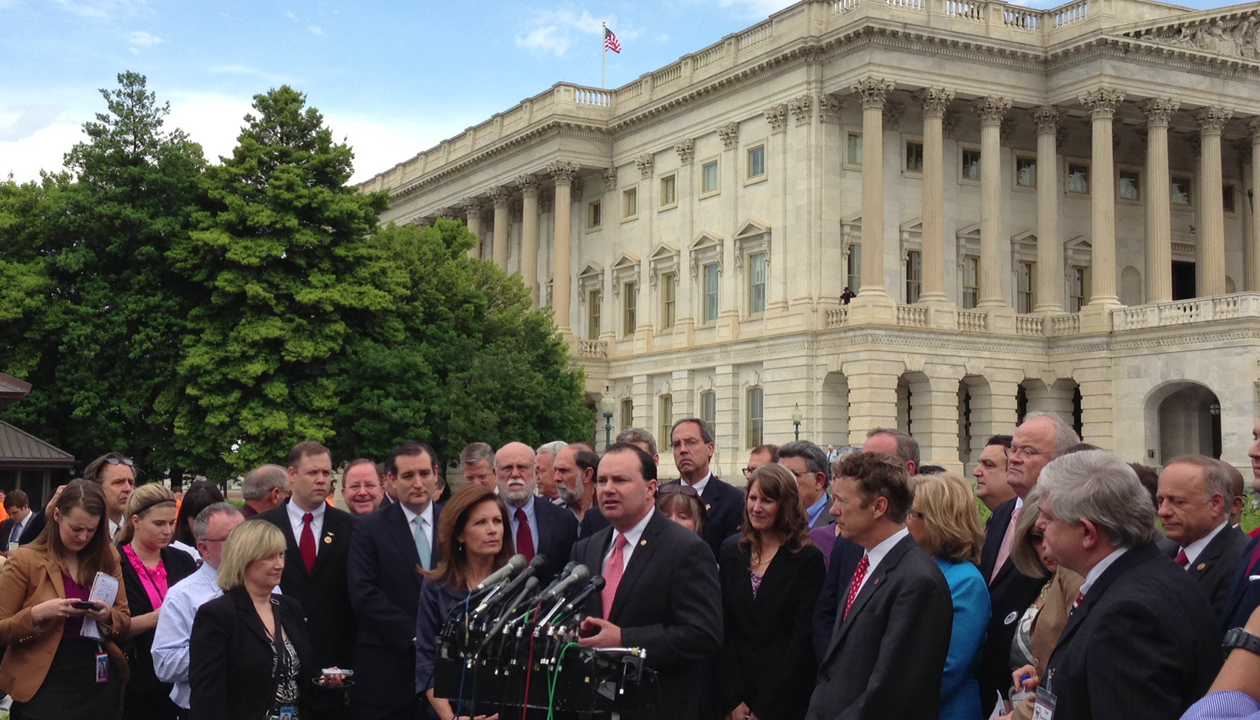The Obama Scandals Aren’t About Bad Government, but Big Government
May 16, 2013

The more power any government has, the more power it will abuse. The more money it spends, the more money it will mis-spend. Dysfunction and corruption grow on government like mold on otherwise perfectly good bread.
Let's Avoid Another Train Wreck and Fix Immigration the Right Way
May 14, 2013
If the goal of Monday's immigration hearing in the Senate Judiciary Committee was to create the appearance of motion and evoke emotion then it was a success. I am not interested simply in motion, however. I want forward movement on comprehensive immigration reform.
Law abiding gun owners' rights: Opposing view
Apr 17, 2013
Following the tragedy at Sandy Hook Elementary, the country was rightly focused on steps we might take to help stop such horrible crimes from happening. Unfortunately, the proposals offered in the Senate, including the expansion of background checks, would serve primarily to restrict the rights of law-abiding citizens, while doing little, if anything, to prevent the kind of tragic violent crimes that took place in Newtown, Conn., and Aurora, Colo.
Gun Debate is Key to Protecting Individual Liberty
Apr 10, 2013
At its core, the Second Amendment helps ensure that individuals and local communities can serve as the first line of defense against threats to our persons and property. Any limitation on this fundamental right of self-defense makes us more dependent on government for protection. But government can’t be everywhere at all times, so the practical effect of limiting our individual rights is to make us less secure.
Second Amendment: History's lesson and warning
Apr 3, 2013
Gun control isn't about guns — it's about control. And the right to bear arms isn't about the arms — it's about the right.
Conservatism Means Replacing Big Government With Civil Society
Mar 19, 2013
It is time for conservatives to reframe the debate. It is time to focus on the principles that will lead us to the kind of country and society we want for our future and ourselves.
Here is the principle I ask conservatives to consider: The opposite of bad government is not good government. It isn't even limited government. The opposite of bad government is a Civil Society. A free and strong civil society is built on the innate desire of Americans to freely contribute to the betterment of the community.
Unlocking the Abundance Beneath our Feet
Mar 8, 2013
One of the most important aspects of our economy is the price of energy. It affects virtually every aspect of our lives. Higher oil prices, for example, lead to higher energy costs. Families are forced to spend more and more of their incomes on heating and electricity bills. Food and other goods become more expensive as the price of producing and shipping rises. Businesses are harmed as costs go up.
Washington needs a Balanced Budget Amendment
Feb 14, 2013
The last time Congress was close to passing legislation that required the federal government to balance its budget the national debt stood at $5.3 trillion. Since then, the national debt has nearly tripled to $16.4 trillion.
Sen. Mike Lee: 'Fiscal cliff' deal: When 'good enough' isn't
Jan 4, 2013
But in fact, the fiscal cliff deal failed to improve on our broken status quo, and what little it did change, it made worse.
Treaty backers can't have it both ways
Dec 6, 2012
Supporters of the U.N. Convention on the Rights of Persons with Disabilities are attempting to have it both ways. They dismiss as a myth any concerns about protecting sovereignty or parental rights because the treaty lacks a formal enforcement mechanism. They suggest that Congress can simply ignore any United Nations demand that isn't in our national interest.